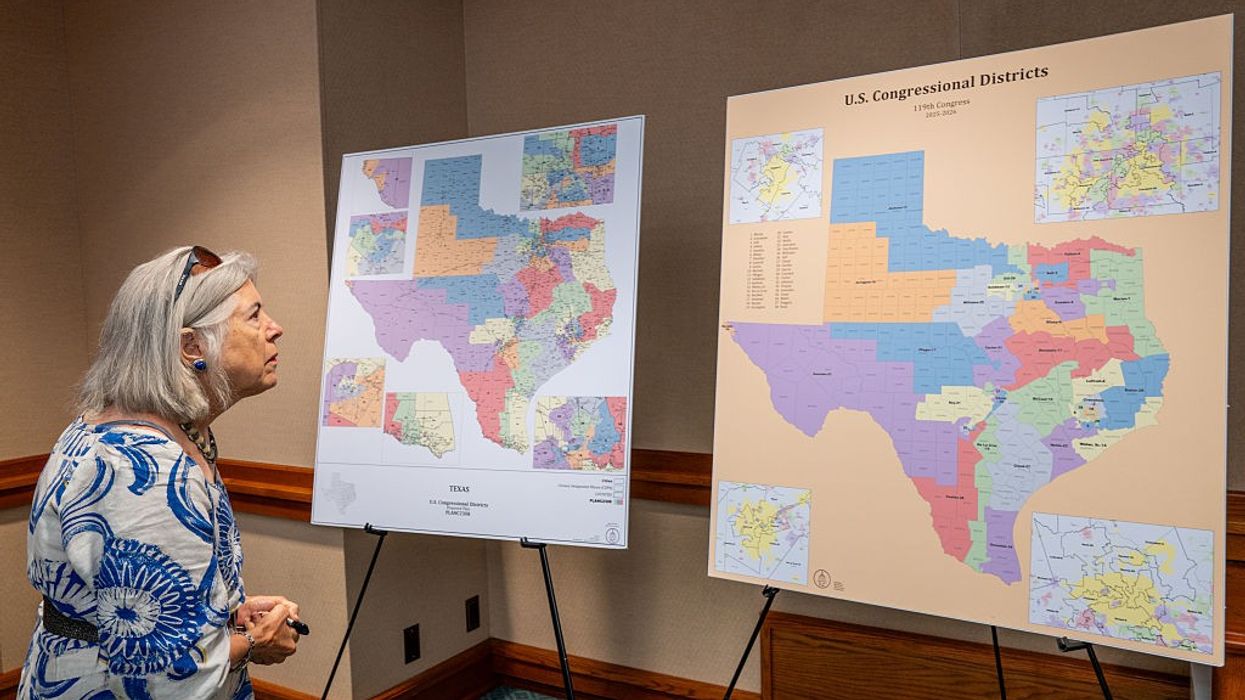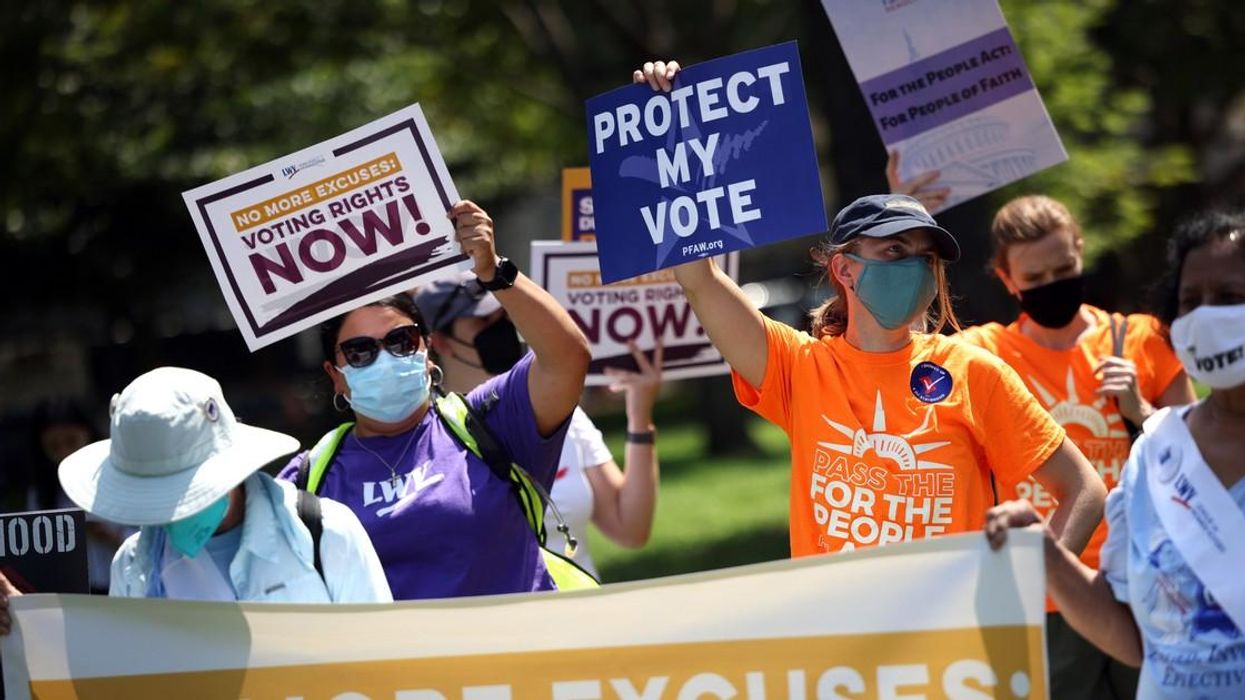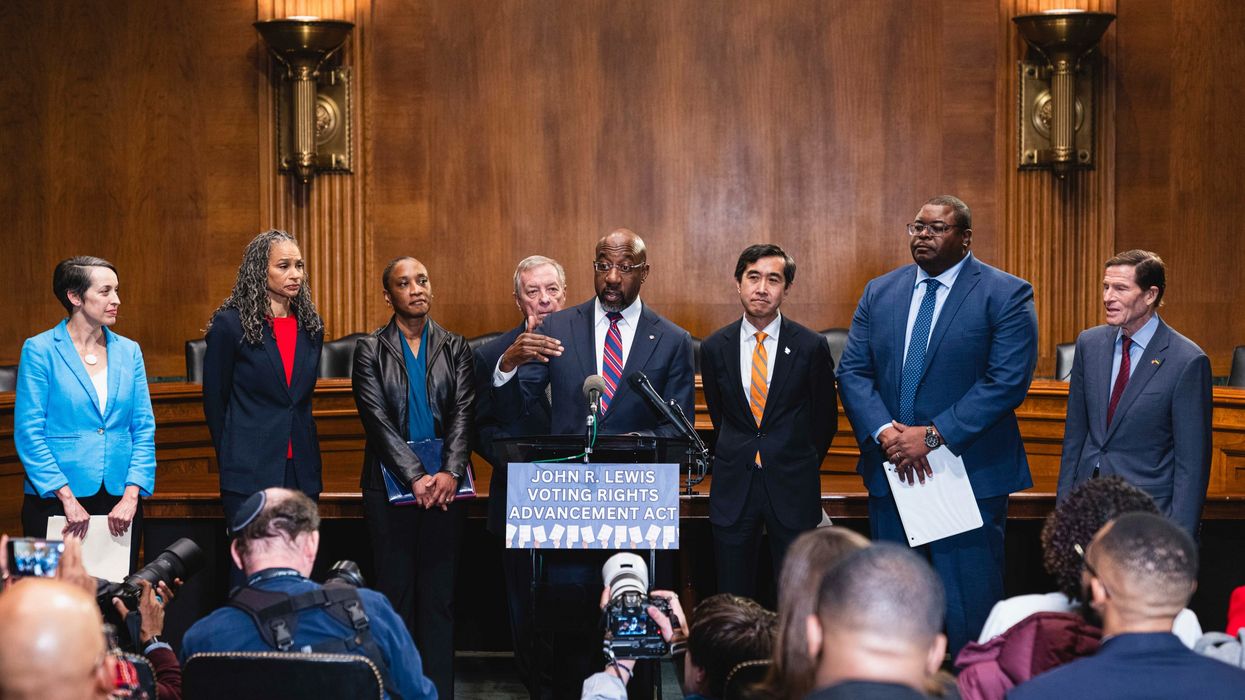Watchdog Unveils Standards for Countermeasures to 'Authoritarian' GOP Gerrymandering
"We will not sit idly by while political leaders manipulate voting maps to entrench their power and subvert our democracy," said the head of Common Cause.
As Republicans try to rig congressional maps in several states and Democrats threaten retaliatory measures, a pro-democracy watchdog on Tuesday unveiled new fairness standards underscoring that "independent redistricting commissions remain the gold standard for ending partisan gerrymandering."
Common Cause will hold an online media briefing Wednesday at noon Eastern time "to walk reporters though the six pieces of criteria the organization will use to evaluate any proposed maps."
The Washington, D.C.-based advocacy group said that "it will closely evaluate, but not automatically condemn, countermeasures" to Republican gerrymandering efforts—especially mid-decade redistricting not based on decennial censuses.
Amid the gerrymandering wars, we just launched 6 fairness criteria to hold all actors to the same principled standard: people first—not parties. Read our criteria here: www.commoncause.org/resources/po...
[image or embed]
— Common Cause (@commoncause.org) August 12, 2025 at 12:01 PM
Common Cause's six fairness criteria for mid-decade redistricting are:
- Proportionality: Any mid-decade redistricting should be a targeted response proportional to the threat posed by mid-decade gerrymanders in other states.
- Public participation: Any redistricting must include meaningful public participation, whether through ballot initiatives or open public processes.
- Racial equity: Redistricting must not further racial discrimination or dilute the political voice of Black, Latino, Indigenous, Asian American, and Pacific Islander, or other communities of color.
- Federal reform: Leaders pursuing mid-decade redistricting must publicly endorse the John R. Lewis Voting Rights Advancement Act and the Freedom to Vote Act, including provisions banning mid-decade redistricting and partisan gerrymandering.
- Endorsement of independent redistricting: Leaders pursuing mid-decade redistricting must publicly endorse citizen-led independent redistricting commissions as the long-term solution.
- Time-limited: Any new redistricting maps must expire following the 2030 Census, which counts all people in our country, and be replaced through the regular decennial redistricting process.
"We will not sit idly by while political leaders manipulate voting maps to entrench their power and subvert our democracy," Common Cause president and CEO Virginia Kase Solomón said in a statement. "But neither will we call for unilateral political disarmament in the face of authoritarian tactics that undermine fair representation."
"We have established a fairness criteria that we will use to evaluate all countermeasures so we can respond to the most urgent threats to fair representation while holding all actors to the same principled standard: people—not parties—first," she added.
Common Cause's fairness criteria come amid the ongoing standoff between Republicans trying to gerrymander Texas' congressional map and Democratic lawmakers who fled the state in a bid to stymie a vote on the measure. Texas state senators on Tuesday approved the proposed map despite a walkout by most of their Democratic colleagues.
Leaders of several Democrat-controlled states, most notably California, have threatened retaliatory redistricting.
"This moment is about more than responding to a single threat—it's about building the movement for lasting reform," Kase Solomón asserted. "This is not an isolated political tactic; it is part of a broader march toward authoritarianism, dismantling people-powered democracy, and stripping away the people's ability to have a political voice and say in how they are governed."


